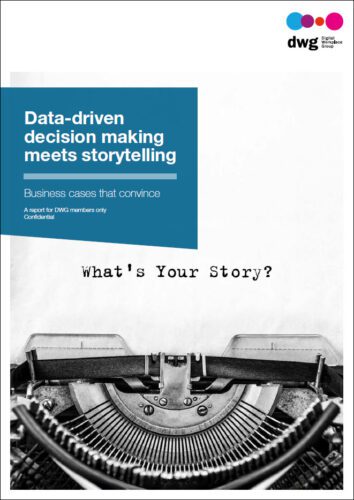12 things to consider as you embark on digital skills initiatives in your organization
 In DWG’s 2017 Member Survey, we asked about digital literacy initiatives for the first time. This is an area where many companies are active, with interventions ranging from basic elements such as online guides, e-learning modules, or hints and tips, through to more ambitious, formalized programmes with extensive digital curricula, champion networks, help communities, and more.
In DWG’s 2017 Member Survey, we asked about digital literacy initiatives for the first time. This is an area where many companies are active, with interventions ranging from basic elements such as online guides, e-learning modules, or hints and tips, through to more ambitious, formalized programmes with extensive digital curricula, champion networks, help communities, and more.
Perhaps most surprising among our findings was just how many organizations are either doing nothing in this area or taking only an ad-hoc approach. In fact, 39% of respondents said that their organization had no digital skills programme or that they were not aware of any such programme.
Our research, along with that of industry bodies such as the European Commission and OECD, suggests a significant digital skills challenge for large organizations around the world. Not addressing this risks negative impacts on key measures such as productivity and security. On the flipside, organizations that are successfully addressing it are experiencing benefits such as productivity gains and greater ability to exploit digital opportunities in the marketplace.
To enable DWG members to take a well-considered, evidence-based approach to raising the the digital IQ of their workforces, we have delved into 15 case studies of successful digital literacy efforts across a range of organizations – from Adobe and Rolls Royce, to KBC Group and Scottish Government. These are explored in detail in a new report, “Raising your organization’s digital IQ: How to improve digital skills”, along with 12 practices revealed from the case studies that digital workplace practitioners should consider as they embark on digital skills initiatives within their own organizations.
To get you started, download an overview of these 12 practices here.
How are you tackling the digital literacy challenge in your organization? What barriers do you face in trying to raise the organisation’s digital IQ, and what novel or creative approaches are you taking to address them?
Get access to the full report and 70+ other best practice digital workplace reports
DWG members have access to this full report, which forms part of DWG’s best practice Research Library of 70+ reports covering key areas such as strategy and governance, personalization, user experience and change management for intranets and digital workplaces.
Find out what else is in the library and new research that’s coming up. Contact us to learn how to gain access to this library via DWG membership.
Research and resources
● BLOG: What does a ‘Minimum Viable Digital Leader’ look like in your organization?
● FREE EXECUTIVE SUMMARY: The Inside Out Digital Leader
Take the next step
Raising your organization’s digital IQ: How to improve digital skills

Categorised in: → Digital literacy, Digital workplace, Research reports

